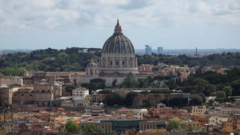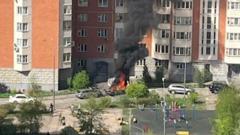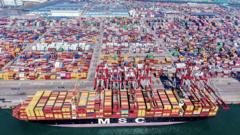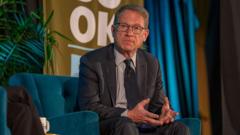A three-hour meeting in Moscow between US envoy Steve Witkoff and Russian leader Vladimir Putin has been described as 'constructive' with discussions centered on the potential for renewed peace talks concerning the ongoing conflict in Ukraine. Meanwhile, Ukrainian President Zelensky calls for increased international pressure on Russia amid the stalled ceasefire agreements.**
Constructive Talk in Moscow: US and Russia Discuss Ukraine Conflict**

Constructive Talk in Moscow: US and Russia Discuss Ukraine Conflict**
US envoy Steve Witkoff and Russian President Vladimir Putin engage in discussions focused on resuming Ukraine peace talks, despite ongoing tensions.**
A recent meeting in Moscow between US envoy Steve Witkoff and Russian President Vladimir Putin has provided a temporary glimmer of hope in the ongoing conflict in Ukraine. Lasting approximately three hours, the talks were characterized by Putin's aide, Yuri Ushakov, as "constructive and very useful," particularly in discussing the potential revival of direct negotiations between Russia and Ukraine. While no details from the US side have been publicly shared, President Donald Trump suggested that the discussions signaled progress towards reaching a deal, mentioning concrete outcomes, including trade agreements.
Ukrainian President Volodymyr Zelensky, however, has taken a different stance, emphasizing the need for greater international pressure on Russia, which he accuses of obstructing a previous ceasefire initiative proposed by the US. In light of recent violence, including a missile strike on Kyiv that resulted in multiple fatalities, Zelensky has pointed to Russia's continued military supplies from allies like North Korea as a complicating factor in achieving a peaceful resolution.
The backdrop of Witkoff's visit included heightened tensions with Ukraine now under pressure to concede territory to facilitate peace talks. Trump has openly placed blame on Kyiv for the war's escalation, citing their interest in joining NATO and their reluctance to acknowledge Crimea as part of Russia. This has raised significant concerns regarding the prospects for any agreement, especially when Ukrainian leaders state their unwillingness to accept territorial compromises, considering Crimea integral to their national identity.
In response to these developments, the US's potential peace plan remains closely guarded, with rumors suggesting it would permit Russia to retain significant territorial gains, including the annexed regions of Crimea. Contrastingly, European nations and Ukraine appear to be advocating for discussions about occupied territories to follow a ceasefire.
As the situation unfolds, the complexities and disparities between the parties' positions underscore the difficulty of reaching a lasting solution to the conflict while maintaining international support for Ukraine's sovereignty. The state of peace negotiations is further complicated by violent incidents, including recent attacks that have led to fatalities on both sides, effectively hampering diplomatic efforts. The outcomes of these recent discussions remain pivotal as the international community watches attentively, seeking a path towards resolution in a protracted and volatile confrontation.






















